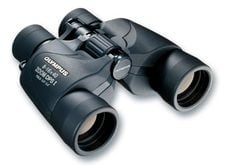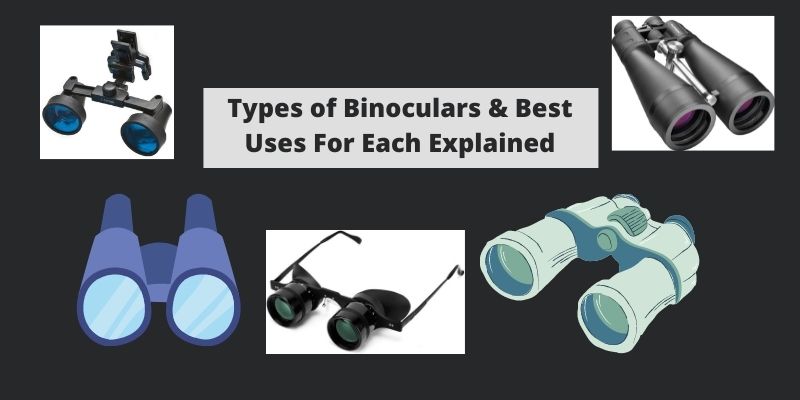Exploring Different Kinds Of Binoculars for Outside Experiences
Exploring Different Kinds Of Binoculars for Outside Experiences
Blog Article
The Value of Binoculars in Education And Learning and Scientific Research: How These Optical Instruments Add To Discovering and Exploration
The combination of field glasses right into educational settings and scientific research is commonly ignored, yet their payment to improving empirical abilities is significant. In disciplines ranging from environmental science to astronomy, binoculars serve as important tools that promote inquiry and crucial thinking.
Enhancing Observational Skills
In educational and research setups, the usage of field glasses dramatically boosts empirical abilities among trainees and experts alike. These optical tools assist in a deeper understanding of distant topics, allowing individuals to observe details that would or else continue to be undetected. By using field glasses, learners can analyze wildlife, expensive sensations, and geological developments, fostering a more extensive link to the topic.
Binoculars serve as important devices in area research studies, encouraging pupils to involve proactively with their environment. Via boosted monitoring, they can gather data more properly, bring about boosted analytical abilities. This hands-on experience permits the advancement of critical reasoning, as pupils have to translate what they see and relate it to academic understanding.

Bridging Theory and Practice
Observational abilities developed via the use of binoculars normally bring about an extra profound integration of theoretical understanding with functional application. By involving in direct observation, learners can change abstract principles right into tangible experiences. This synergy promotes a much deeper understanding of clinical concepts as students link academic structures with real-world phenomena.
For example, when examining bird biology, pupils can use their knowledge of bird composition and actions with the lens of field glasses, observing characteristics such as plumage variation, feeding routines, and migratory patterns. This straight interaction not just enhances academic principles but also cultivates essential thinking and analytical skills.
Additionally, using field glasses motivates students to develop hypotheses based on their observations, thus improving their scientific query skills. They can proactively test these theories in the area, causing a much more experiential discovering setting that promotes curiosity and expedition.
Basically, binoculars work as a vital device in linking the space between class understanding and fieldwork - Binoculars. They encourage trainees to become energetic individuals in their education and learning, urging an all natural technique to understanding the environment and its complexities. Hence, the combination of theory and technique is critical for cultivating informed and involved students
Applications in Environmental Science
Using field glasses in ecological science improves the capability to observe and evaluate ecological communities with higher accuracy. These optical instruments are necessary for conducting field researches, allowing scientists to monitor wildlife populaces, analyze plant health and wellness, and examine environment conditions without disrupting the native environment. Field glasses help with the recognition of varieties at various distances, enabling researchers to collect vital information on biodiversity and actions.
In ecological research study, binoculars are important devices for ornithologists researching bird actions and migration patterns. They allow researchers to tape monitorings over extended periods, adding to important longitudinal research studies - Binoculars. Furthermore, field glasses play an important function in habitat evaluations, as they permit the detailed observation of plant communities and their interactions within environments
Ecological instructors additionally gain from field glasses, as these tools boost experiential understanding possibilities. Pupils can involve directly with their surroundings, fostering a deeper appreciation for ecological systems. By including field glasses right into curricula, trainers can inspire the future generation of environmental researchers.
Function in Astronomy Education And Learning
Using binoculars in astronomy education gives an accessible gateway for students and fanatics to explore holy phenomena (Binoculars). Unlike big telescopes, binoculars are mobile, easy to use, and fairly inexpensive, making them a perfect initial device for observing the evening sky. Pupils can conveniently engage with the universes, promoting a hands-on knowing experience that enhances their understanding of expensive ideas
Binoculars enable individuals to observe a selection of celestial things, including the Moon, worlds, and celebrity clusters. Significantly, field glasses serve as a bridge to much more intricate astronomical instruments, offering fundamental experiences that can spark deeper passion in the field.
In educational settings, led binocular sessions can promote group cooperation and conversation, enhancing the discovering experience. The shared experience of observing holy bodies can cultivate a feeling of area amongst learners. Overall, binoculars play a crucial function in debunking astronomy, making it approachable and appealing for people in all levels of education.

Inspiring Inquisitiveness and Query
Binoculars not just help with the monitoring of holy sensations but also spark a sense of curiosity and questions among students. By supplying a more detailed take a look at distant objects, binoculars encourage students to ask moved here questions and check out the atmosphere around them. This tool transforms passive understanding right into an energetic, engaging experience, promoting a much deeper understanding of clinical principles.
When pupils utilize binoculars to observe wildlife, landscapes, or astronomical items, they establish empirical abilities that are essential for scientific query. The act of concentrating on specific details triggers them to develop theories, perform investigations, and reason based upon their monitorings. This procedure not just enhances their important thinking capabilities yet likewise supports a long-lasting passion for exploration.
In addition, binoculars can connect the space in between theoretical understanding and real-world application. As students observe sensations firsthand, they can connect class discovering to practical experiences, making education extra relevant and meaningful. Eventually, making use of binoculars in academic settings works as websites a catalyst for inquisitiveness, equipping students to seek knowledge with excitement and promoting a feeling of question the world around them. By doing this, field glasses play an important duty in motivating future generations of scientists and thinkers.
Final Thought
In recap, field glasses work as important devices in education and learning and scientific research study, significantly improving observational skills useful site while bridging the gap between academic expertise and sensible application. Their varied applications in areas such as environmental science and astronomy underscore their significance in fostering curiosity and questions among trainees. By helping with comprehensive assessments of far-off topics, field glasses not just motivate the next generation of researchers yet additionally grow a profound admiration for exploration and the scientific method.
Report this page